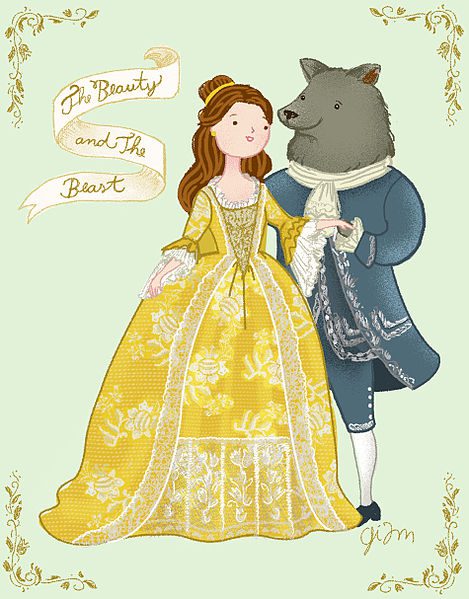
Opine and the world opines with you, but attack Beauty and the Beast and you will opine alone.
Having taken on the animated classic more than once, I have received some spirited responses, though saying I was shaped like LeFou with the romance of Gaston seemed harsh. Fortunately, an excellent critic has arisen to defend the film and I am honored to respond.
We both agree that Disney has taken the original story, a tale not quite as old as time, but fairly old, and done something totally new with the tale. A great many virtues go missing in the animated film: content with one’s lot and talents, humility, and piety. Shebuel Varghese concedes the point, but rightly says one must take the film as film. What about the merits of the animated movie?
They are very great. Beauty and the Beast is beautifully crafted and the story telling is tight. Of all animated films, it may be my favorite, certainly my favorite American film. Yet despite the virtues, I still have ought against it and it begins with Belle “wanting so much more than this provincial life” and the destruction of provincial France at the end of the movie.
Varghese defends this ably here:
In the story, Belle wants more “than this provincial life.” This is a classic trait found in the heroes of some our greatest stories. Consider Christian in Pilgrim’s Progress who yearns for more than the city around him, and this innate sense drives him to go on the adventure and satisfy this inexplicable longing, found ultimately in the Celestial City. Lucy, Edmund, and Eustace know that there is more than their world, and long to return to the enchanted Narnia. A number of Disney characters possess this sense of unsatisfied longing as well: Aladdin, Hercules, Simba. Rather than this being a matter of pride or superiority, Belle is attune to the fact that there must be more to life than the world she experiences. Her eyes see past the shadows around her, and she senses a life beyond the one she has been living. A number of great thinkers have called attention to this human condition, from Plato to C.S. Lewis. As Lewis points out, “If I find in myself a desire which nothing in this world can satisfy, the only logical explanation is that I was made for another world.” Many of these thinkers point out that this earthly and material world must not be all there is; there must be something beyond the natural: the magical.
Nobody who is Christian could ever argue against this point of view. If only that were the viewpoint, found in Beauty and the Beast!
Read the lyrics to the song. The townspeople are all boors, because on a workday they are going about their normal business. The town has a well stocked book shop, putting it ahead of most American towns, where the book store owner gives Belle the book of fairy tales she is reading because she likes it so much. The town is made to look bad, but even then it is not so bad.
There is, of course, a life beyond the one Belle leading, but in the film that life turns out to be a castle with a prince. At the end of the tale, the castle is disenchanted. Belle does not go from the town to Narnia, or Heaven. Instead, she is “moving on up” to a higher social caste. Of course, if everyone in town is a boor, if Gaston is the arbiter of mores, then Belle should want more, but isn’t that part of the problem with the film? The townspeople (country folk) are stereotyped unmercifully. The women are either matrons or bosomy cheerleader types and the men are like Gaston or cartoonish. Who buys all the books?
Even the song has the townspeople sing:
The girl is strange but specialA most peculiar mad’moiselle!











